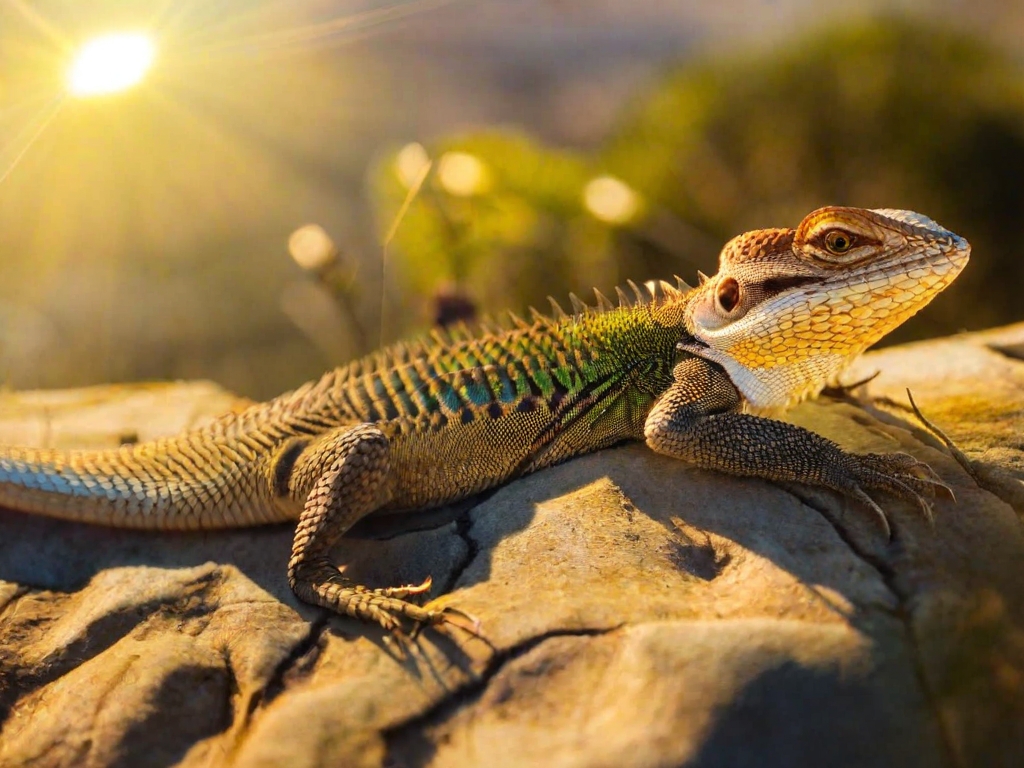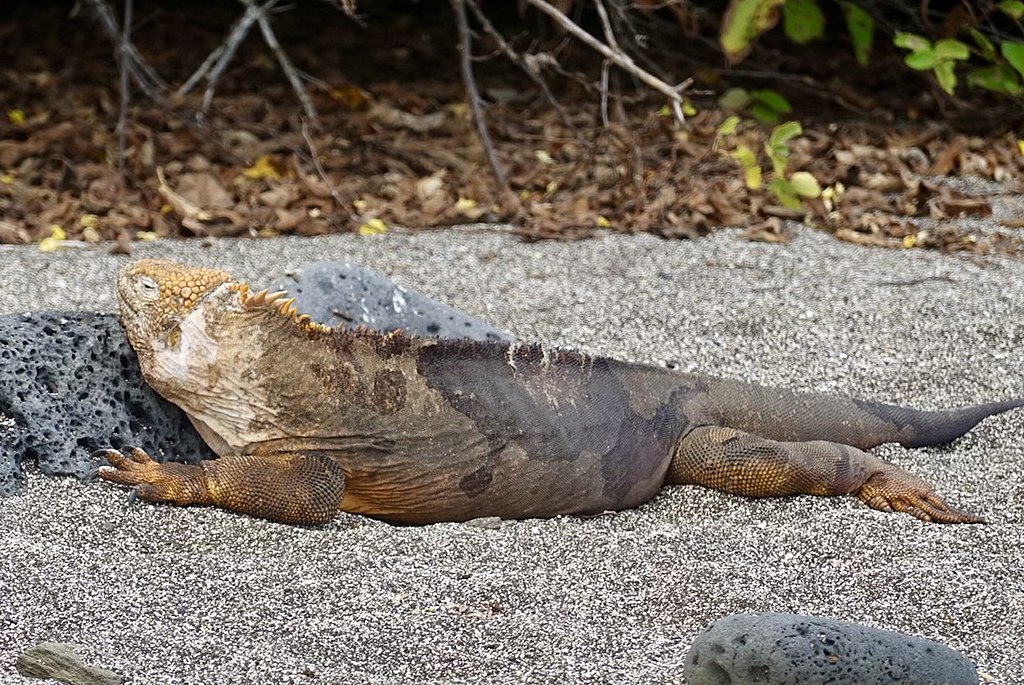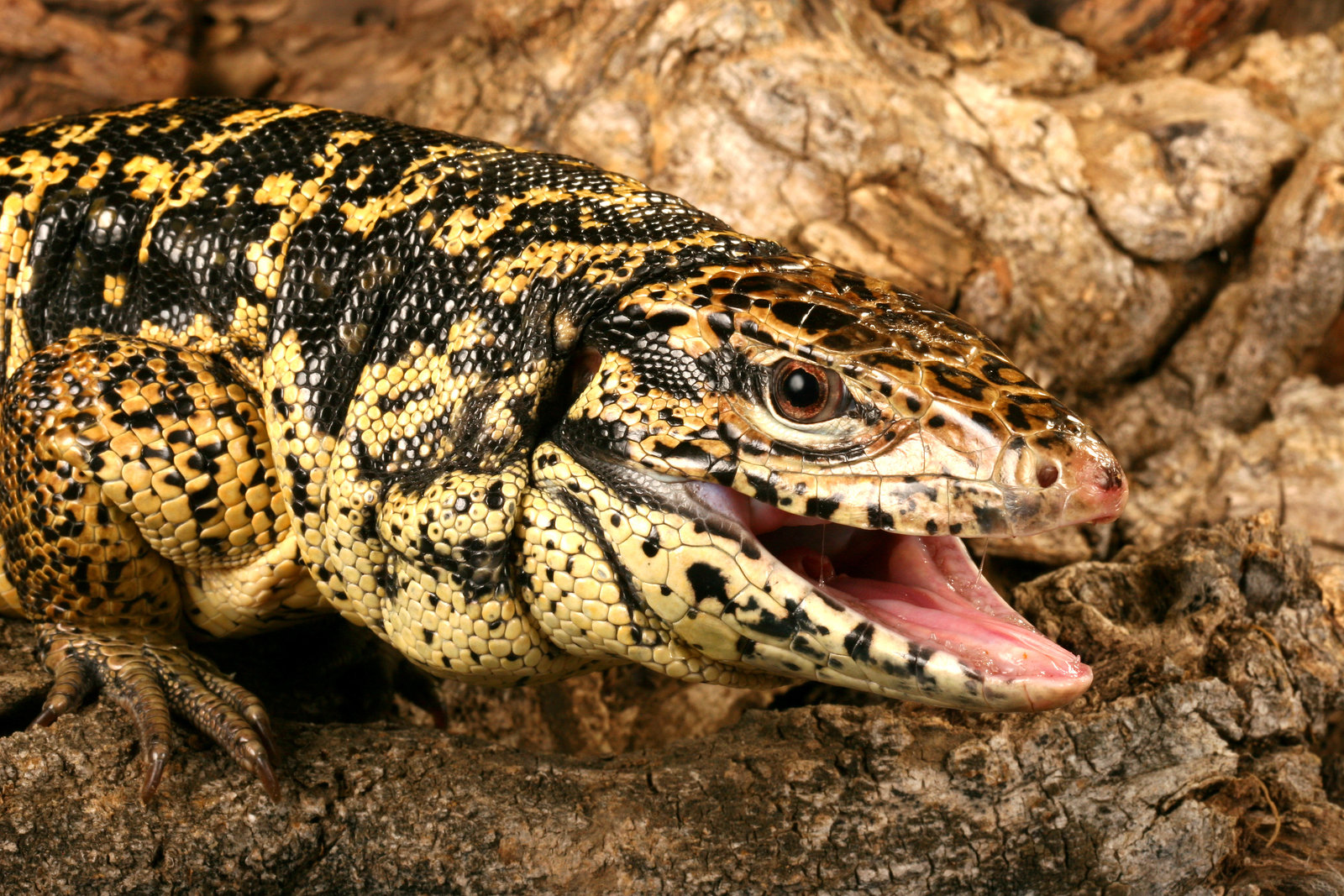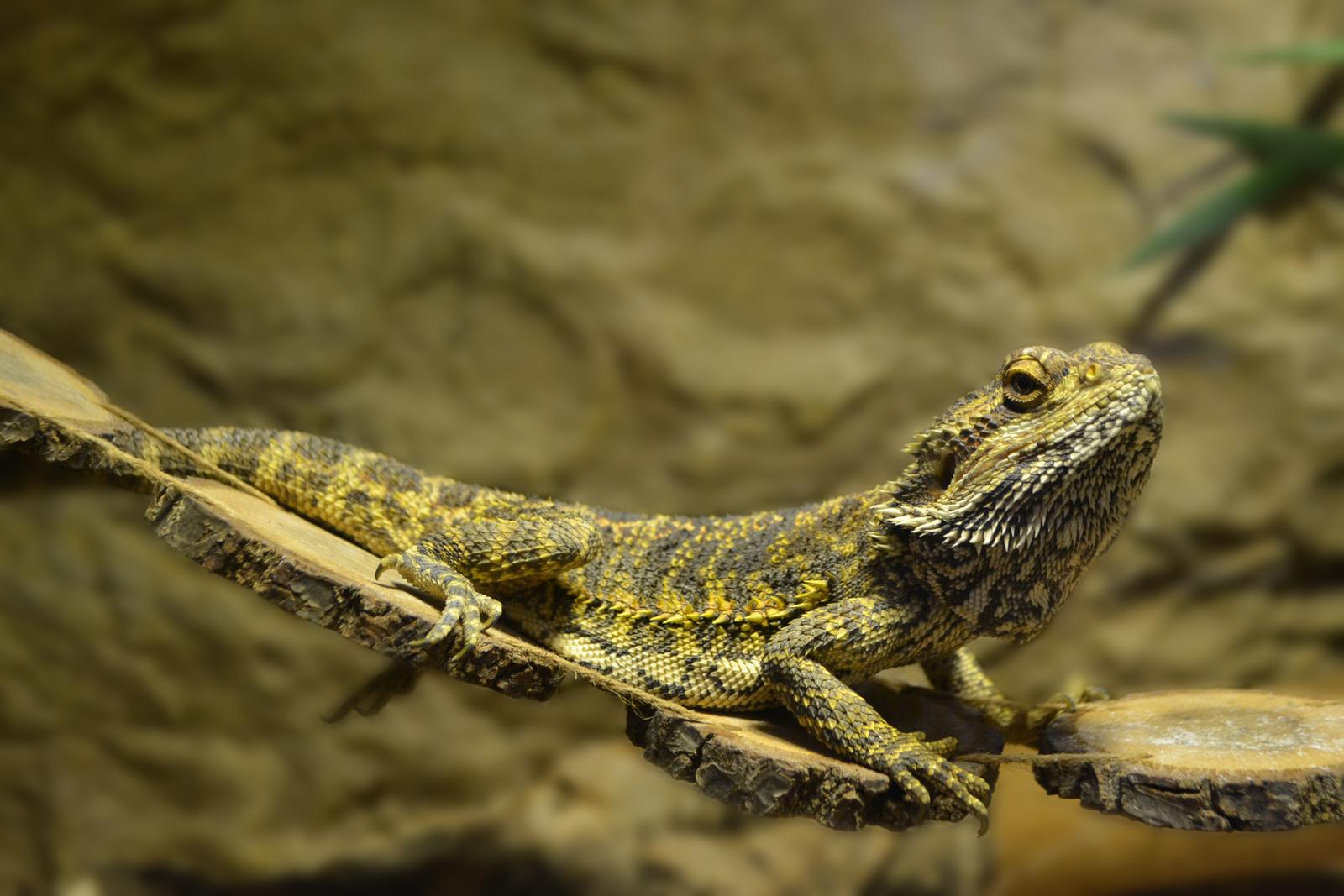Lizards are fascinating creatures, known for their unique behaviors and adaptations. One of their most intriguing behaviors is sunbathing, or basking in the sun. But why do lizards bask in the sun? Is it simply for warmth, or is there more to it than that?
As it turns out, there are several reasons why lizards bask in the sun. For one, they are ectothermic, which means that they rely on external heat sources to regulate their body temperature. By basking in the sun, they are able to absorb heat and warm themselves up, which is important for their overall health and survival. But there are also other benefits to sunbathing, including the absorption of essential nutrients and the improvement of digestive function. In this article, we will explore the various reasons why lizards bask in the sun and how this behavior affects their overall well-being.
Ectothermic Adaptations
Ectothermic adaptations, such as basking in the sun, are utilized by lizards to regulate their body temperature. Unlike humans and other mammals, lizards cannot produce their own body heat. They rely on external sources such as the sun to warm up their bodies and increase their metabolism.
Basking in the sun allows lizards to absorb heat through their skin, which is then transferred to their internal organs. This helps them to maintain their optimal body temperature, which is necessary for various physiological functions like digestion, reproduction, and immune system function. In fact, some species of lizards are known to have specific basking spots that they frequent regularly to regulate their body temperature.
Regulating Body Temperature
By relying on external sources of heat, reptiles like lizards are able to maintain their body temperature through a process known as thermoregulation. This process involves regulating their body temperature by moving between warm and cool environments. When lizards bask in the sun, they are exposing themselves to heat in order to warm up their bodies and increase their metabolism. This allows them to become more active and alert, which can be especially important for hunting or avoiding predators.
However, basking in the sun for too long can also be dangerous for lizards, as they risk overheating and dehydrating. To avoid this, lizards will often move to a cooler area or seek shade when they have absorbed enough heat. Some species of lizards have also developed specialized adaptations to help them regulate their body temperature, such as the ability to change their skin color or the presence of specialized blood vessels in their skin. These adaptations allow lizards to survive in a wide range of environments, from deserts to rainforests.
Absorbing Essential Nutrients
To absorb essential nutrients, you’ll need to ensure that the food you provide for your pet lizard is varied and nutritionally balanced. Lizards need a diverse range of vitamins and minerals to maintain their overall health and wellbeing. For example, calcium is essential for strong bones and teeth, while vitamin D3 helps the body absorb calcium effectively. Without these nutrients, lizards can develop various health problems, such as metabolic bone disease.
One way lizards can absorb essential nutrients is by basking in the sun. This is because sunlight helps their bodies produce vitamin D3 naturally. When lizards bask in the sun, they expose their skin to ultraviolet (UV) rays, which trigger the production of vitamin D3 in their bodies. This process is crucial for their overall health and wellbeing, as it ensures that they can absorb calcium effectively and maintain healthy bones and teeth. Therefore, it’s important to provide your pet lizard with access to a UV light source, or if possible, allow them to bask in natural sunlight for a few hours each day.
The Science Behind Lizard Basking Behavior: Sun, Shade, and Vitamin D

You’ve probably seen it before. Lizards basking in the sun, splayed out on a warm rock or branch, soaking up the sun’s UV rays. But have you ever stopped to wonder why these cold-blooded critters bask in the sun? It might be tempting to think they’re just enjoying the sun to warm up, but there’s more to this behaviour than meets the eye.
Lizards, like many reptiles and amphibians, are ectotherms. These cold-blooded animals regulate their body temperature through their surroundings, not through internal body heat like warm-blooded mammals and birds. This process, known as thermoregulation, becomes critical when their body temperature drops. To raise their body temperature, they utilize heat from the sun, shifting between sun and shade to control their body temperature precisely. Panther chameleons and various other lizard species use this basking behavior to swallow the morning sun to raise their body temperature.
New Study
However, a new study conducted by Kristopher Karsten, a biologist at Texas Christian University, indicates there may be more to this sun-basking behavior than merely thermoregulatory function. Karsten observed the behavior of two different groups of lizards. One group was placed in individual outdoor enclosures that offered open area for direct sun, and the other group was kept in low UV light environments. The lizards placed in the sun-soaked enclosures not only had a chance to absorb heat but also received ample UV exposure.
Now, here’s where it gets interesting. Unlike humans, lizards and other cold-blooded critters can produce vitamin D in their skin when exposed to UV radiation. This vitamin is essential for strong bones and a healthy immune system. In addition to thermoregulation, lizards may bask in the sun to optimize their vitamin D profile. Karsten’s study showed that the lizards in the sunlight had a higher vitamin D receptor activity in their brain, hinting that they absorbed enough UV to produce it in their skin.
Basking Behaviour
The study challenges the conventional understanding that basking behavior in ectothermic animals like lizards is solely for regulating body temperature. In fact, the behavior could also be linked to internal vitamin D production, proving that there is more to a lizard’s love for the sun than we initially thought.
So, the next time you see lizards, freshwater turtles, or any ectothermic critters basking in the sun, remember – they’re not just sunbathing for fun. These animals are engaging in a complex and fascinating dance with the environment around them, absorbing heat to raise their body temperature and optimize their vitamin D production. From sun-loving chameleons to crickets dusted with vitamin D powder, there’s no denying that the world of ectotherms is incredibly complex and utterly fascinating.
Who knew that a lizard’s love for the sun could illuminate such a unique intersection of thermoregulation, vitamin D production, and survival strategy? So, let’s continue to observe, research, and appreciate the intricate marvels of nature – like lizards basking in the sun – right in our backyard.
Improving Digestive Function
Ensuring a varied and nutritious diet can greatly enhance your pet lizard’s digestive function, leading to improved overall health and wellbeing. When a lizard basks in the sun, it increases its body temperature, which in turn speeds up its metabolic rate. This increased metabolic rate allows for more efficient digestion and absorption of nutrients from its food.
In addition to helping with digestion, basking in the sun also promotes gut motility. This means that the muscles in the lizard’s digestive tract contract more frequently and effectively, helping to move food through its system. This can prevent issues such as constipation and impaction, which can be common in pet lizards. Therefore, providing a warm basking spot and a nutritious diet are essential components in maintaining a healthy digestive system for pet lizards.
Behavioral Implications
Understanding the behavioral implications of your pet lizard’s diet and environment is crucial for providing them with optimal care. One of the most common behaviors exhibited by lizards is basking in the sun. This behavior is not just about warming up, but it also serves other important functions.
Basking in the sun helps lizards regulate their body temperature, which is critical for their overall health and wellbeing. Lizards are ectothermic, which means that they rely on external sources of heat to regulate their body temperature. By basking in the sun, they are able to increase their body temperature, which allows them to be more active and alert. Additionally, basking in the sun can also help lizards produce vitamin D, which is important for maintaining healthy bones and immune systems. Therefore, providing your pet lizard with a suitable basking spot with proper temperature and lighting is essential for their physical and mental health.
The Importance of Sunbathing for Lizards’ Health
Sunbathing is a crucial behavior for lizards, as it plays a significant role in their overall health and well-being. By basking in the sun, lizards are able to regulate their body temperature, absorb essential nutrients, and improve their digestive function. Let’s explore each of these aspects in more detail.
Regulating Body Temperature and Thermoregulation
Lizards, being ectothermic animals, rely on external heat sources to regulate their body temperature. Basking in the sun allows them to absorb heat through their skin, which is then transferred to their internal organs. This helps them maintain their optimal body temperature, which is necessary for various physiological functions such as digestion, reproduction, and immune system function.
Thermoregulation is the process by which lizards control their body temperature by moving between warm and cool environments. Basking in the sun is a crucial part of this process, as it allows lizards to increase their body temperature, making them more active and alert. This is especially important for hunting or avoiding predators. However, lizards also need to be cautious not to overheat or dehydrate, as prolonged exposure to the sun can be dangerous. They will often seek shade or move to a cooler area once they have absorbed enough heat.
Absorbing Essential Nutrients and Produce Vitamin D
Another important aspect of sunbathing for lizards is the absorption of essential nutrients, particularly vitamin D. When lizards bask in the sun, their skin is exposed to ultraviolet (UV) rays, which trigger the production of vitamin D3 in their bodies. This process is crucial for their overall health and well-being, as it ensures effective calcium absorption and the maintenance of healthy bones and teeth.
To ensure proper vitamin D production, it is important to provide pet lizards with access to a UV light source or allow them to bask in natural sunlight for a few hours each day. This, combined with a varied and nutritionally balanced diet, will help prevent health issues such as metabolic bone disease.
Sunbathing and Digestive Function in Lizards
Sunbathing also has a significant impact on the digestive function of lizards. By increasing their body temperature through basking, lizards experience an accelerated metabolic rate, leading to more efficient digestion and absorption of nutrients from their food.
Enhanced Digestion and Nutrient Absorption
When lizards bask in the sun and raise their body temperature, their metabolic rate increases. This increased metabolic rate allows for more efficient digestion and absorption of nutrients from their food. Proper digestion is essential for lizards to obtain the necessary energy and nutrients for growth, reproduction, and overall health.
Additionally, basking in the sun promotes gut motility in lizards. The increased body temperature stimulates the muscles in their digestive tract to contract more frequently and effectively. This enhanced gut motility helps move food through their system, preventing issues such as constipation and impaction, which can be common in pet lizards.
Behavioral Implications and Territorial Behavior
Sunbathing behavior in lizards also has behavioral implications, including social communication and territorial behavior. Basking spots often become important areas for lizards to establish and defend their territories. By occupying a prime basking spot, lizards can assert dominance and establish their presence to potential rivals or mates.
Furthermore, basking in the sun can also serve as a form of social communication among lizards. By observing the basking behaviors of other lizards, individuals can gather information about their species, sex, and reproductive status. This information can influence their own behavior and interactions within their social group.
Sunbathing is a vital behavior for lizards, serving multiple purposes beyond simply warming their bodies. It allows them to regulate their body temperature, absorb essential nutrients like vitamin D, improve their digestive function, and even communicate with other lizards. Understanding the importance of sunbathing for lizards’ health and behavior is crucial for providing optimal care and ensuring their overall well-being.
Frequently Asked Questions
How long can lizards go without basking in the sun?
Lizards cannot go long without basking in the sun as it is essential to their survival. Without it, their body temperature drops and they cannot properly digest food or fight off infections.
Do all species of lizards need to bask in the sun, or are there exceptions?
Not all lizard species need to bask in the sun. Some, like the gecko, have adapted to live in low light environments and do not require direct sunlight. However, most lizards need to bask to regulate their body temperature and maintain their health.
Can lizards get sunburned from basking for too long?
Lizards can get sunburned from basking for too long. It’s important for them to regulate their exposure to sunlight to avoid damage to their skin and eyes.
Are there any negative consequences for lizards that are unable to bask in the sun?
Lizards that are unable to bask in the sun may suffer from vitamin D deficiency and weakened immune systems. Lack of sunlight can also affect their metabolism, growth, and reproductive abilities.
Is there a specific time of day that is best for lizards to bask in the sun?
The best time of day for lizards to bask in the sun depends on their species and habitat. Some prefer early morning or late afternoon, while others prefer midday.
Conclusion On Cold-Blooded Reptile Basking Behaviour
Lizards bask in the sun for several reasons. As ectothermic animals, they rely on external sources of heat to regulate their body temperature. Basking in the sun allows them to absorb essential nutrients, improve their digestive function, and maintain a healthy immune system. Additionally, basking behavior can have behavioral implications, such as social communication and territorial behavior.
It is important to note that while basking in the sun is essential for lizards, it can also be a risky behavior. Exposure to too much heat can lead to dehydration, overheating, and even death. Therefore, it is crucial for lizards to strike a balance between soaking up the sun and finding shade or other ways to cool down. Overall, understanding why lizards bask in the sun can provide insight into their unique adaptations and behaviors as ectothermic creatures.



